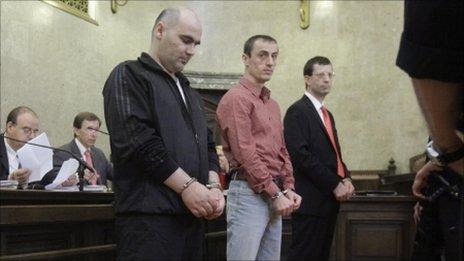Berlin Chechen shooting: Russian assassination suspected
- Published
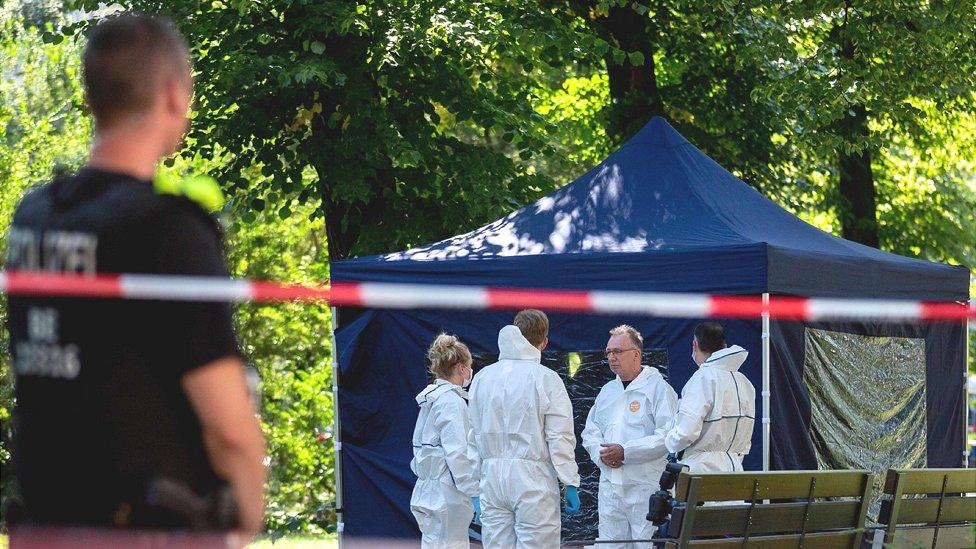
Police at the spot in a Berlin park where the Chechen exile was shot
A Chechen exile shot dead in a Berlin park had fought against Russian troops and may have been assassinated by a Russian agent.
German police arrested a 49-year-old Russian man soon after the shooting on Friday, and found the suspected pistol and bike used in the attack.
The victim was Zelimkhan Khangoshvili and he had long been a target.
What happened?
Witnesses quoted in German media said the killer approached Khangoshvili, aged 40, from behind on a bicycle and shot him twice in the head, then sped off.
The attack took place in the Kleiner Tiergarten park in Moabit, central Berlin, just before midday on 23 August.
Police were quickly on the scene and arrested the suspected killer, who had been spotted dumping the bike, pistol and other evidence into the nearby River Spree.
The gun, a Glock 26, was used with a silencer. Police divers recovered the gun and bike, the Berlin state prosecutor's office tweeted., external
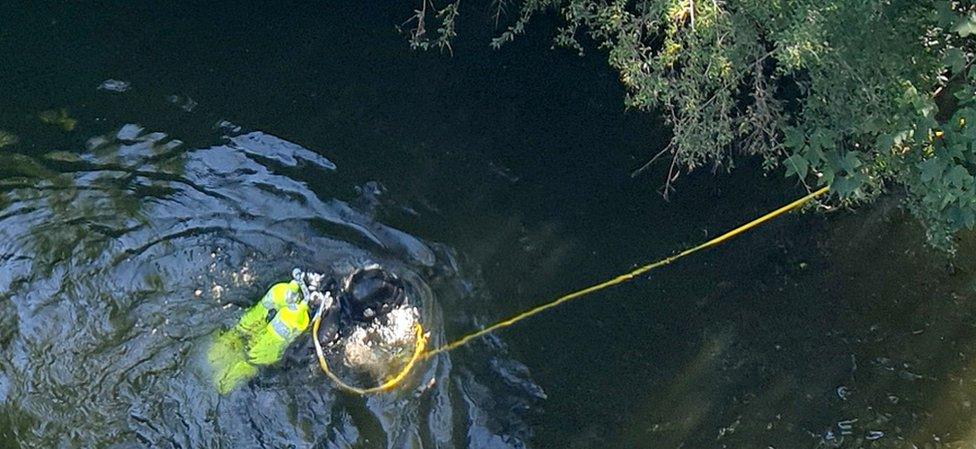
Police divers quickly found the discarded pistol and bike in the nearby river
The suspect, named only as Vadim S, reportedly had a large sum of cash in his flat, searched by investigators. He has been formally accused of "treacherous killing".
Vadim S travelled to Berlin from Moscow via Paris a few days before the attack, and had a return ticket to Moscow, German media report.
Suspicions fall on Russia partly because of previous high-profile attacks on dissidents abroad. The most notorious in the UK were the poisonings of Russian ex-state security officers Alexander Litvinenko in 2006 and Sergei Skripal in 2018.
Who was the victim?
Khangoshvili fought in the second Chechen war against Russian forces in the North Caucasus, in 2001-2005.
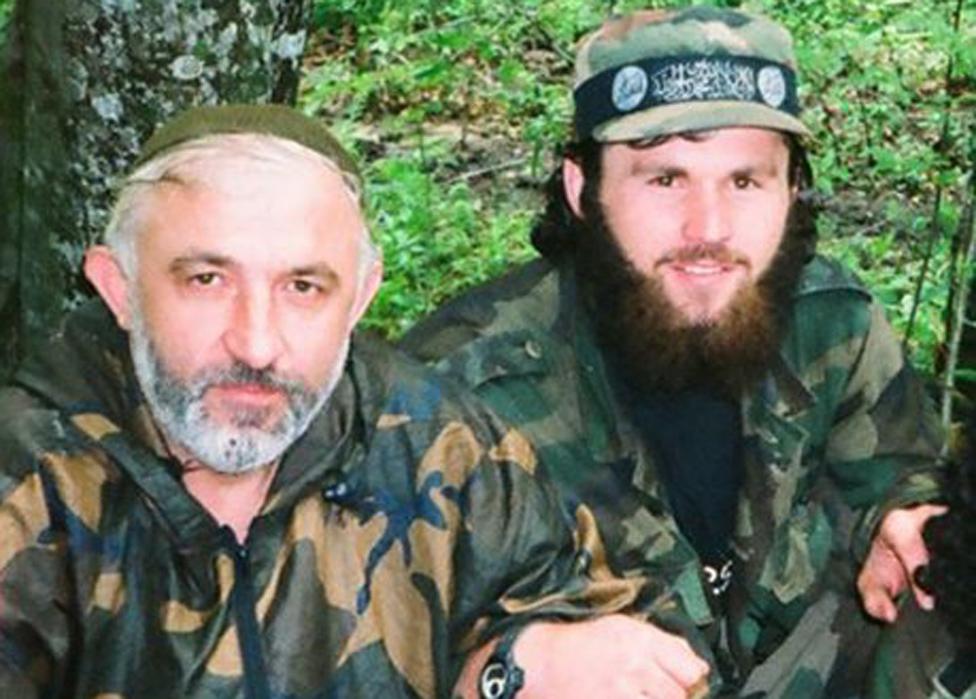
Khangoshvili (R) was a close associate of Aslan Maskhadov (L), the Chechen rebel leader killed in 2005
He came from the Kist community of ethnic Chechens and lived in the mountainous Pankisi Gorge area of Georgia.
But he fled to Germany after surviving an assassination attempt in the Georgian capital Tbilisi in 2015.
A Georgian lawyer contacted by the BBC, Tamta Mikeladze, accuses Georgian prosecutors of serious shortcomings in their handling of that crime.
Eight bullets were fired at Khangoshvili, and he was wounded but managed to get to hospital.
Ms Mikeladze's civil society group, Human Rights Education and Monitoring Center (EMC), took up Khangoshvili's case, seeking justice for him.
"Zelimkhan explained that the attack on him was connected to his participation in the Chechen war," she told the BBC.
"He was a field commander and a close ally of Chechen President Aslan Maskhadov.
"Due to his war experience, the Russian special services' interest in him was high. Some of his comrades were also killed after the war," Ms Mikeladze said.
Maskhadov was killed alongside several Chechen rebel comrades in a Russian special forces raid in 2005. Maskhadov had masterminded fierce Chechen guerrilla resistance to overwhelming Russian firepower in the war.
Who rules Chechnya?
Chechnya is now run by Ramzan Kadyrov, a former rebel who switched sides and is now fiercely loyal to Russian President Vladimir Putin.
Human rights groups accuse Ramzan Kadyrov of persecuting critics and committing abuses in his fight against insurgents
Mr Kadyrov has a reputation for ruthlessness and is blacklisted by Western nations. Several Chechen opposition activists have been assassinated abroad in recent years.
The Georgian language service of Radio Free Europe says Khangoshvili acted as a mediator to defuse a conflict in the Lopota Gorge in August 2012. Georgian security forces went there to end a hostage-taking by armed Chechens.
After 2005 a low-level, anti-Kadyrov insurgency continued in the North Caucasus, with Islamist militants operating from villages near Russian-controlled Chechnya and Dagestan.
Several Chechens from the Pankisi Gorge - Khangoshvili's home territory - joined the Islamic State (IS) jihad in the Middle East.
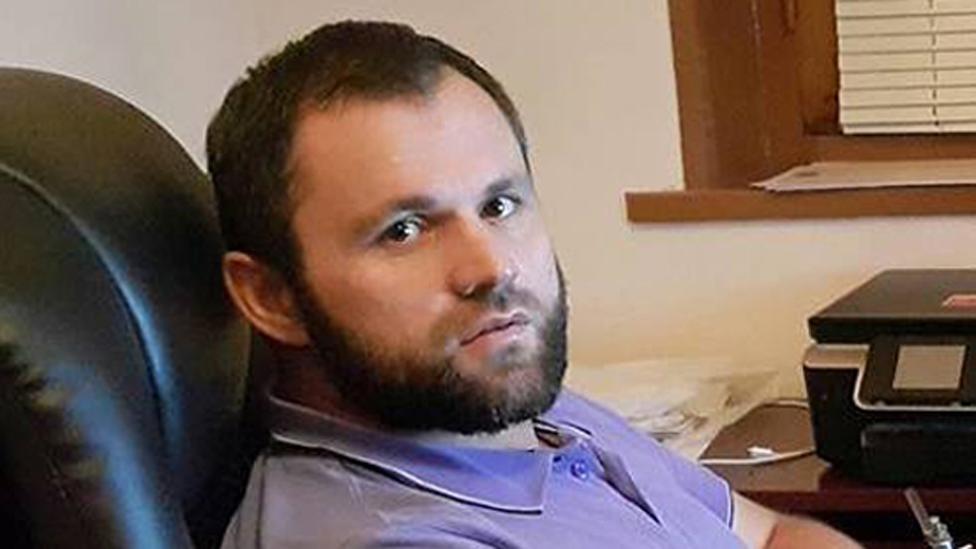
A more recent photo of Khangoshvili (location not known)
Khangoshvili feared for his life in Georgia and used various aliases. He also used aliases in Germany, where he applied for asylum, but was not granted it.
German media report that he was on a police watch list for a while, as a suspected Islamist, but was later dropped from it for lack of evidence.
Some reports speculate that his death could have been a criminal settling of scores, rather than a political assassination. He was suspected of links with the criminal underworld.
In his Kist community back in Georgia, Ms Mikeladze says, there is deep sorrow over his death. He was "a very influential leader" there.
His wife and four children remain in Berlin.
Many Chechens moved to Germany and other EU countries because of the long-running conflict in Chechnya. But many have found it difficult to get asylum.
- Published20 January 2016
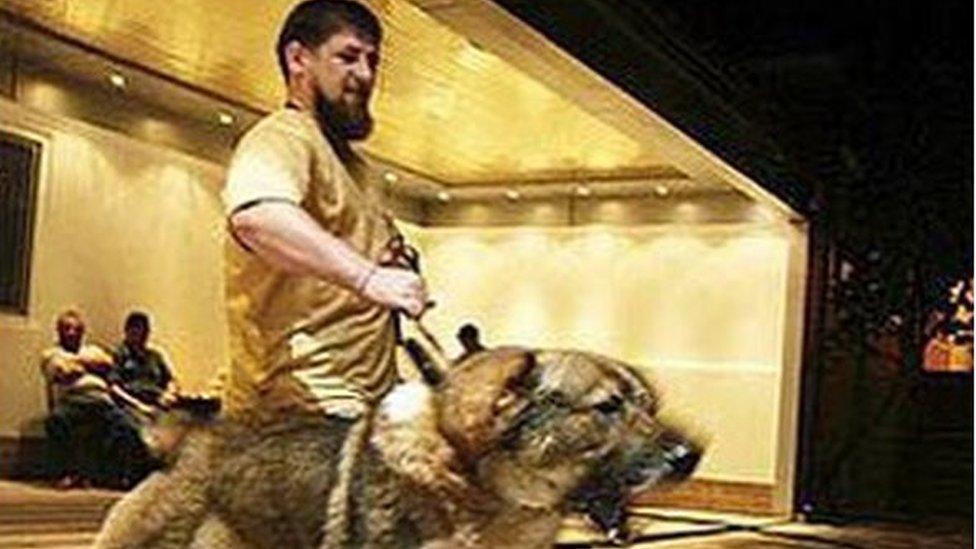
- Published21 April 2016
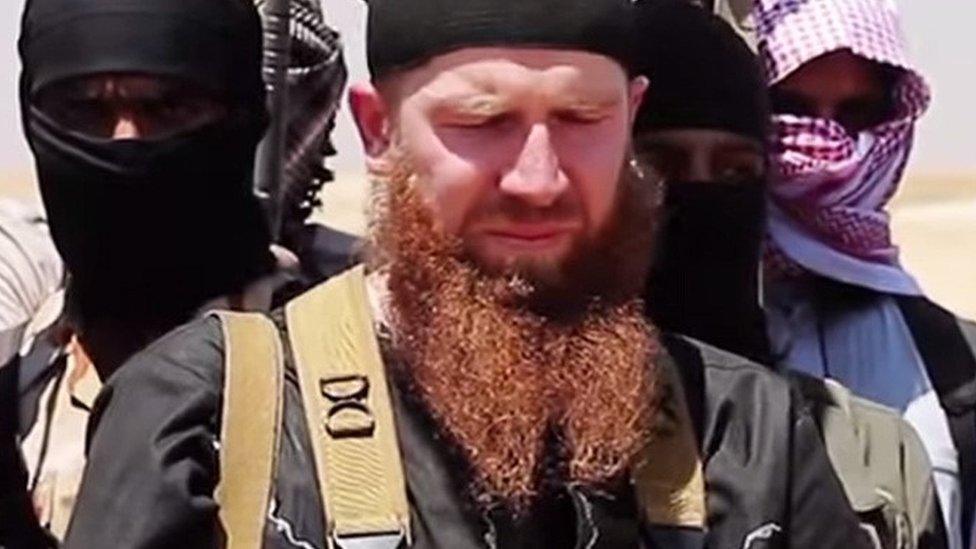
- Published21 May 2020
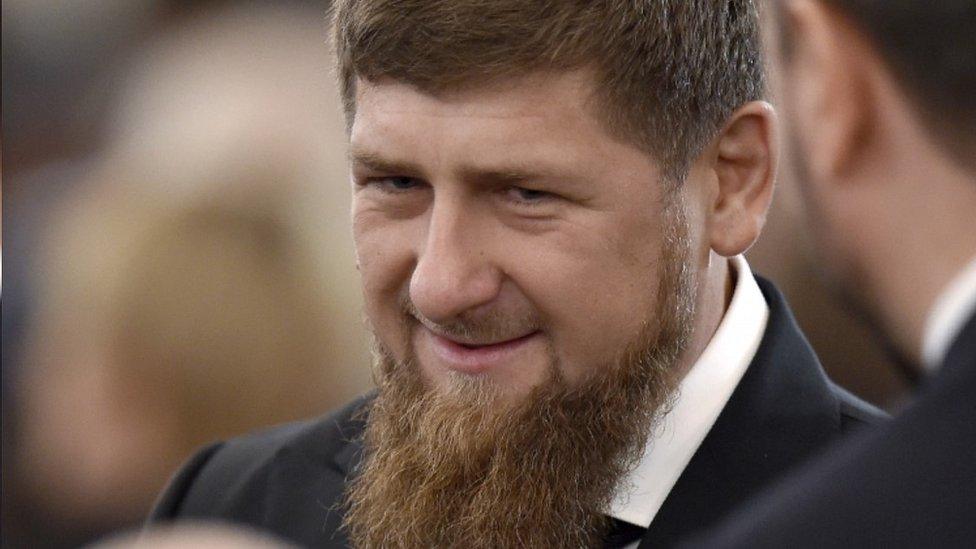
- Published28 June 2019
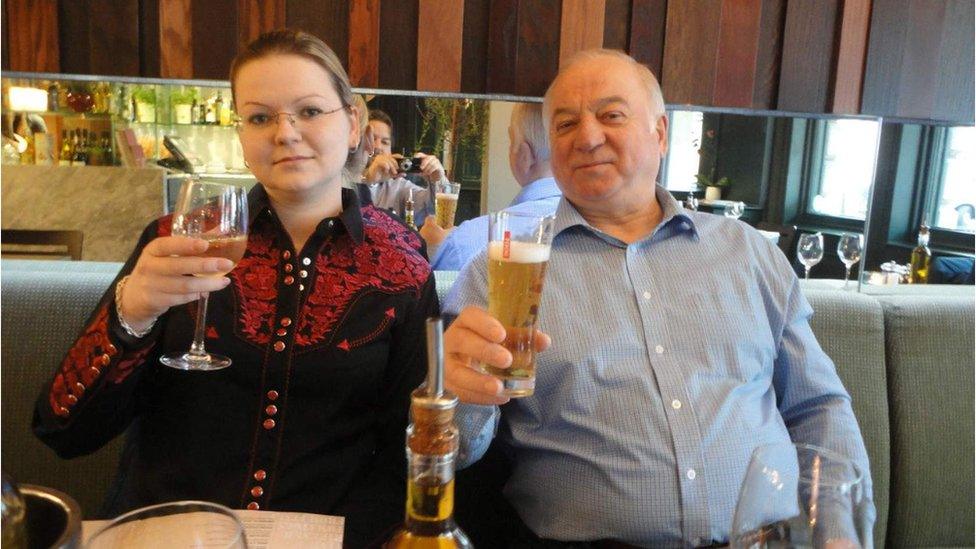
- Published18 September 2012
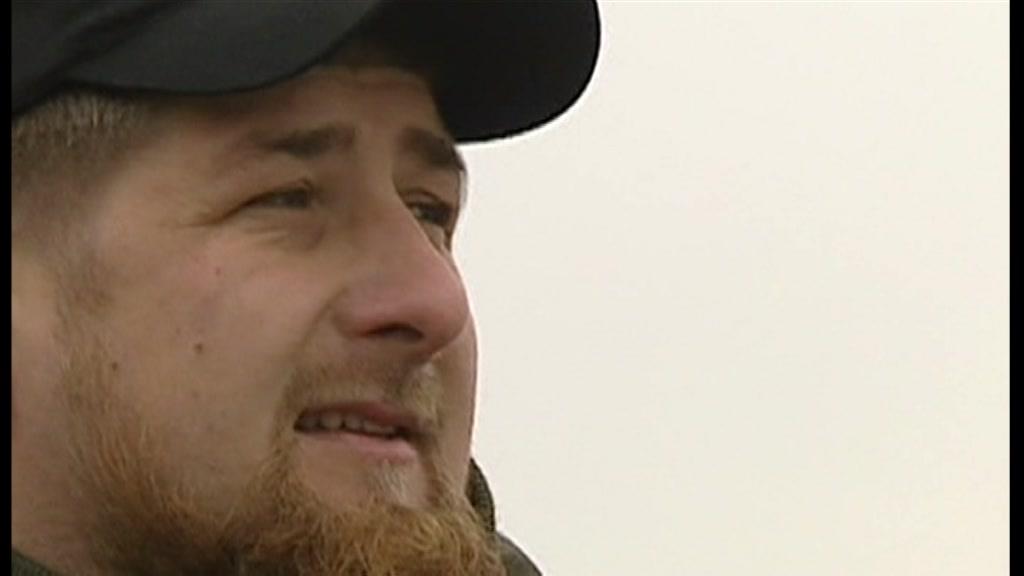
- Published1 June 2011
